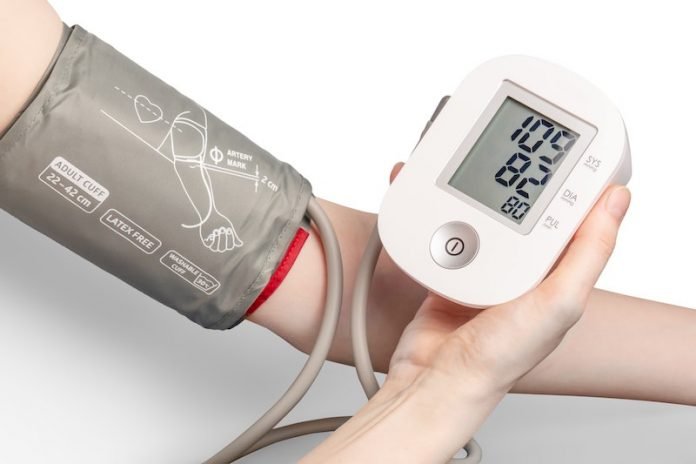
Scientists from the U.S. Centers for Disease Control and Prevention found the prevalence of risk factors for Alzheimer’s disease and related dementias varies and is highest for high blood pressure and not meeting aerobic physical activity guidelines.
The research was published in Morbidity and Mortality Weekly Report and was conducted by John D. Omura et al.
In the study, the team analyzed data from the cognitive decline module administered to adults aged 45 years and older in 31 states and the District of Columbia.
They aimed to examine the status of eight potentially modifiable risk factors.
The researchers found that among the risk factors, the prevalence was highest for high blood pressure and not meeting the aerobic physical activity guideline, followed by obesity, and it was lowest for hearing loss and binge drinking.
The likelihood of reporting four or more risk factors was increased for adults with subjective cognitive decline (SCD) versus those without SCD.
Subjective Cognitive Decline is the self-reported experience of worsening or more frequent confusion or memory loss.
It is a form of cognitive impairment and one of the earliest noticeable symptoms of Alzheimer’s disease and related dementias.
The prevalence of SCD was 11.3 percent overall and increased from 3.9 to 25.0 percent among adults with no risk factors and with four or more risk factors, respectively.
These findings highlight opportunities to accelerate action, particularly among specific populations at high risk.
People can control their high blood pressure and meet aerobic physical activity guidelines to prevent Alzheimer’s disease and dementia.
If you care about dementia, please read studies about nutrients that may help lower the risk of Alzheimer’s, dementia, and this antibiotic drug may treat common dementia effectively.
For more information about brain health, please see recent studies that healthy lifestyle could slow frontotemporal dementia, and results showing these two things could make your brain age fast.
Copyright © 2022 Knowridge Science Report. All rights reserved.



